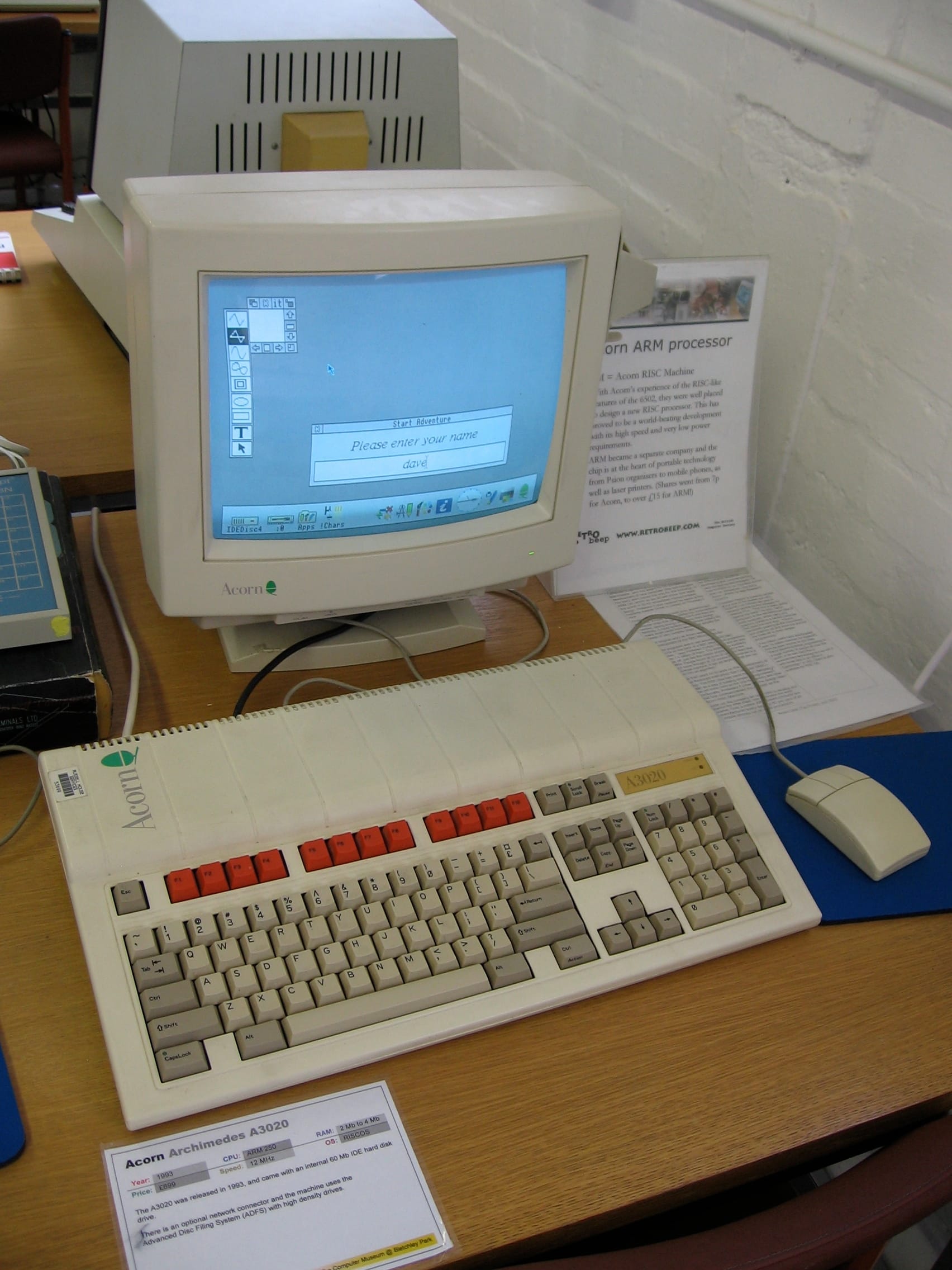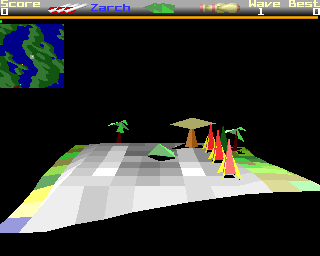Acorn Archimedes: The world’s first RISC-Based home computer
In 1987, Acorn Computers introduced the Archimedes, a revolutionary home computer that marked a major leap forward in computing technology. As the first commercial computer to feature a RISC (Reduced Instruction Set Computer) processor, the Acorn Archimedes boasted incredible performance and efficiency for its time. Designed as the successor to the BBC Micro, the Archimedes carried forward Acorn’s legacy in education while venturing into the world of gaming and creative applications.

The Archimedes was powered by the ARM2 processor, which would go on to form the foundation of modern ARM architecture found in billions of devices today. The computer’s advanced hardware capabilities, combined with its innovative software ecosystem, positioned the Archimedes as a groundbreaking platform. Despite its technical superiority, the Archimedes faced challenges in gaining widespread adoption, but its influence on the computing industry is undeniable.
Technical excellence: The birth of ARM
The Acorn Archimedes’ ARM2 processor was a game-changer. With its 32-bit architecture, 8 MHz clock speed, and extremely low power consumption, the ARM2 delivered performance that outpaced many competitors of the time. Its efficient design allowed for faster computation, making the Archimedes ideal for demanding applications such as 3D graphics and scientific modeling.
One of the standout features of the Archimedes was its graphical capabilities. The computer could display up to 256 colors on-screen simultaneously at resolutions of up to 640x512, a remarkable feat in the late 1980s. This visual power made the Archimedes a compelling choice for educational software, multimedia applications, and games.
The ARM architecture’s scalability and efficiency have since made it the dominant processor design in mobile devices, IoT, and beyond. The Archimedes’ introduction of this groundbreaking technology makes it a key milestone in the history of computing.
Zarch: A pioneering 3D game
Among the Archimedes’ most iconic contributions to gaming was Zarch, developed by David Braben, who is best known as the co-creator of Elite. Released in 1987, Zarch was a 3D action game that showcased the Archimedes’ technical prowess. Players controlled a spaceship tasked with defending a planet from an alien invasion, navigating a fully 3D environment rendered with smooth, fast graphics.

Zarch was revolutionary for its time, offering a sense of depth and motion rarely seen in games of the era. The game’s vibrant colors and fluid animation demonstrated the capabilities of the ARM2 processor, and its challenging gameplay kept players engaged. Zarch was later ported to other platforms under the name Virus, but it was the Archimedes version that captured the imagination of gamers and developers alike.
For many, Zarch was a glimpse into the future of gaming, proving that 3D environments could be immersive and dynamic. It became a symbol of what the Archimedes could achieve and remains a beloved title among retro gaming enthusiasts.
The Archimedes in education and beyond
The Acorn Archimedes built upon Acorn’s success with the BBC Micro, which had been widely adopted in UK schools. The Archimedes continued this legacy, with many educational institutions incorporating it into their classrooms. Its advanced hardware and intuitive RISC OS operating system made it a powerful tool for teaching programming, mathematics, and even creative arts.
RISC OS, the Archimedes’ operating system, was another standout feature. With its graphical user interface and multitasking capabilities, RISC OS was ahead of its time, offering a user-friendly experience that appealed to both students and professionals. Educational software developed for the Archimedes leveraged its graphical and computational power, making learning interactive and engaging.
The legacy of the Acorn Archimedes
Despite its technical brilliance, the Acorn Archimedes struggled to gain traction in the home market, largely due to its high price and limited software library compared to rivals like the Commodore Amiga and Atari ST. However, its influence on the tech industry is profound. The ARM processor that debuted in the Archimedes has become a cornerstone of modern computing, powering smartphones, tablets, and countless other devices.
For retro computing enthusiasts, the Archimedes is a symbol of innovation and potential. Its forward-thinking design and contributions to gaming and education have cemented its place in computing history. The Archimedes may not have been a commercial success, but its legacy as the world’s first RISC-based home computer remains a landmark achievement.




